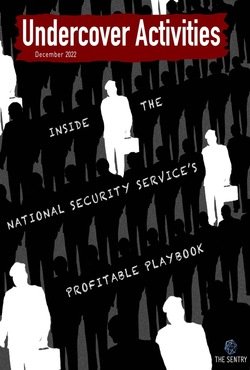By United States. Office Of The Director Of National Intelligence; Intelligence Community (U.S.)
From the document: "Following the attacks of September 11, 2001, and in the wake of the Intelligence Reform and Terrorism Prevention Act passed by Congress in 2004, Director of National Intelligence John D. Negroponte signed out the Intelligence Community's (IC) first National Intelligence Strategy. The strategy explained that the Intelligence Community's clear charge was to: [1] Integrate the domestic and foreign dimensions of U.S. intelligence so that there are no gaps in our understanding of threats to our national security; [2] Bring more depth and accuracy to intelligence analysis; and [3] Ensure that U.S. intelligence resources generate future capabilities as well as present results. Now, almost twenty years after our first strategy was issued, the Intelligence Community's charge remains just as clear, even as the strategic environment has changed dramatically. The United States faces an increasingly complex and interconnected threat environment characterized by strategic competition between the United States, the People's Republic of China (PRC), and the Russian Federation, felt perhaps most immediately in Russia's ongoing aggression in Ukraine. In addition to states, sub-national and non-state actors--from multinational corporations to transnational social movements--are increasingly able to create influence, compete for information, and secure or deny political and security outcomes, which provides opportunities for new partnerships as well as new challenges to U.S. interests. In addition, shared global challenges, including climate change, human and health security, as well as emerging and disruptive technological advances, are converging in ways that produce significant consequences that are often difficult to predict. [...] The six goals outlined in this National Intelligence Strategy have emerged as our understanding of the kinds of information, technology, and relationships needed to be effective in the future has expanded."
Washington. United States. Office of the Director of National Intelligence. Intelligence Community (U.S.). 2023.




